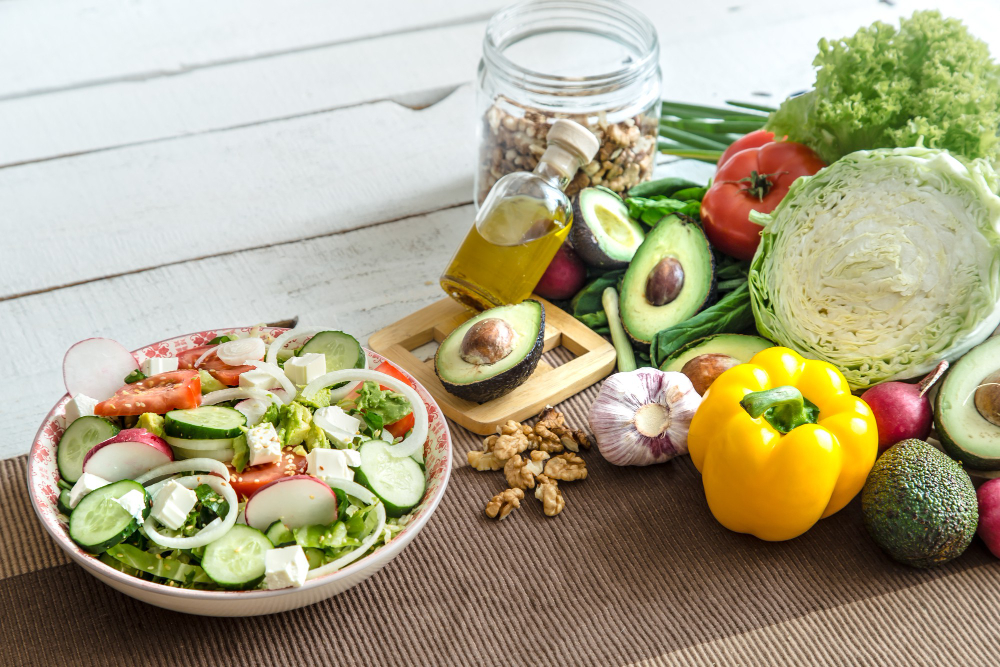Table of Contents:
- Introduction to Elderly Nutrition
- The Nutritional Needs of Seniors
- Common Challenges in Elderly Nutrition
- Practical Tips for a Balanced Diet
- Incorporating Nutrient-Rich Foods
- Understanding Nutritional Supplements
- The Role of Caregivers in Dietary Planning
- Conclusion: Sustaining Healthy Eating Habits
Introduction to Elderly Nutrition
As individuals age, their dietary patterns are pivotal in health and longevity. The importance of good nutrition becomes even more pronounced in these golden years. Research suggests a well-balanced diet can alleviate age-related health issues, boost immune function, and enhance mental acuity. Being mindful of the different nutritional needs for elderly folks compared to their younger counterparts is essential in crafting diets that genuinely support their well-being. As the journey advances, the focus should remain on adding years to life and life to those years. By embracing a nutrient-rich diet, seniors can pave the way for enhanced physical health and a more vibrant lifestyle. Ensuring seniors receive the nutrients they need can mean the difference between merely surviving and thriving. Implementing comprehensive dietary strategies can significantly impact energy levels, mood, and even cognitive function. These dietary enhancements are not only beneficial for the individual’s health but also serve to reduce healthcare costs and improve the quality of life within aging communities.
The Nutritional Needs of Seniors
Understanding the evolving nutritional requirements of seniors is fundamental to fostering health and vitality in their later years. As we age, metabolic rates decrease, meaning our nutritional absorption and energy requirements shift. Seniors require higher amounts of certain nutrients; for instance, calcium and vitamin D are paramount for bone health, while fiber is crucial for digestive processes. Recognizing these changing nutritional needs ensures that dietary plans are relevant and practical. In contrast to younger adults, seniors often face reductions in their ability to absorb certain nutrients due to bodily changes. This necessitates a diet that is not only rich in essential vitamins and minerals but also tailored to address these unique challenges. For instance, vitamin B12 absorption declines due to reduced stomach acid production; hence, fortified foods or supplements may be required.
Common Challenges in Elderly Nutrition
Elderly individuals frequently encounter significant nutrition-related obstacles, impacting their overall health. Decreased appetite, often due to medications or diminished sensory experiences, makes it challenging to meet daily nutritional needs. Taste changes can lead to a preference for saltier or sweeter foods, potentially exacerbating health issues such as hypertension or diabetes. Limited mobility might hinder access to fresh foods or the ability to prepare healthy meals. Chronic conditions like heart disease or diabetes further complicate dietary requirements, making the need for tailored nutritional strategies even more pressing. Addressing these challenges requires both creativity and resourcefulness. Strategies like increasing the nutrient density of meals and improving access to healthier options are critical.
Practical Tips for a Balanced Diet
Navigating the complexities of elderly nutrition doesn’t have to be daunting. Here are several practical tips to support a balanced diet:
Meal Prepping: Preparing meals can combat sporadic eating habits and ensure consistent nutrient intake throughout the week. It can also help combat reliance on less nutritious, ready-made meals.
Hydration: Dehydration poses a significant risk for seniors; therefore, encouraging regular fluid intake is vital. Incorporating hydrating foods like soups or fruits can make staying hydrated more enjoyable.
Small, Frequent Meals: Smaller, regular meals can prevent overeating, help manage diabetes, and maintain energy levels. It is also easier on the digestive system, slowing the aging body. Additionally, working with a dietitian to create personalized meal plans can efficiently transform dietary habits and meet specific nutritional needs.
Incorporating Nutrient-Rich Foods
Adopting a nutrient-rich diet involves integrating a variety of foods that are dense in essential nutrients. Some food categories should be prioritized:
Leafy Greens: Vegetables like spinach, kale, and broccoli should be dietary staples. They are rich in vitamins A, C, and K and contain potent antioxidants.
Whole Grains: Options such as oats, quinoa, and brown rice provide necessary fiber, aiding digestion and contributing to heart health.
Lean Proteins: Chicken, turkey, tofu, and legumes are excellent protein sources vital for muscle maintenance and repair, essential as muscle mass decreases with age. Incorporating these foods helps ensure a comprehensive intake of necessary vitamins and minerals, supporting overall health and functional independence.
Understanding Nutritional Supplements
While a balanced diet can meet most nutritional needs, supplements can help bridge gaps. For instance, vitamin D and calcium supplements may be needed for bone health, mainly when natural sunlight exposure or dietary intake is insufficient. However, any supplement should constantly be introduced with professional guidance to ensure it does not interact adversely with medications or existing health conditions. Supplements can provide peace of mind by ensuring seniors get the nutrition they need, but they should complement, not replace a healthy diet. Regular evaluations by healthcare providers can determine if and when supplements are necessary.

Image by pvproductions on Freepik
The Role of Caregivers in Dietary Planning
Caregivers serve as crucial allies in maintaining an older adult’s dietary regimen. Their role involves meal planning, grocery shopping, and meal preparation, ensuring that each meal meets nutritional needs. Encouraging healthy eating habits through education and empathy is vital for fostering dietary changes. By engaging with older people in discussions about their preferences and needs, caregivers can create a more enjoyable dining experience. They can also assist in monitoring the effectiveness of dietary plans and adjusting meals as health and tastes change over time.
Conclusion: Sustaining Healthy Eating Habits
The journey towards maintaining optimal nutrition during aging is both a commitment and an empowerment. Seniors can enjoy a healthier, more vibrant life by understanding their specific nutritional needs, addressing common dietary challenges, and proactively managing diet plans. Encouraging continuous adaptation of dietary habits ensures that nutrition remains aligned with health needs, ultimately adding life to the years of elderly individuals.